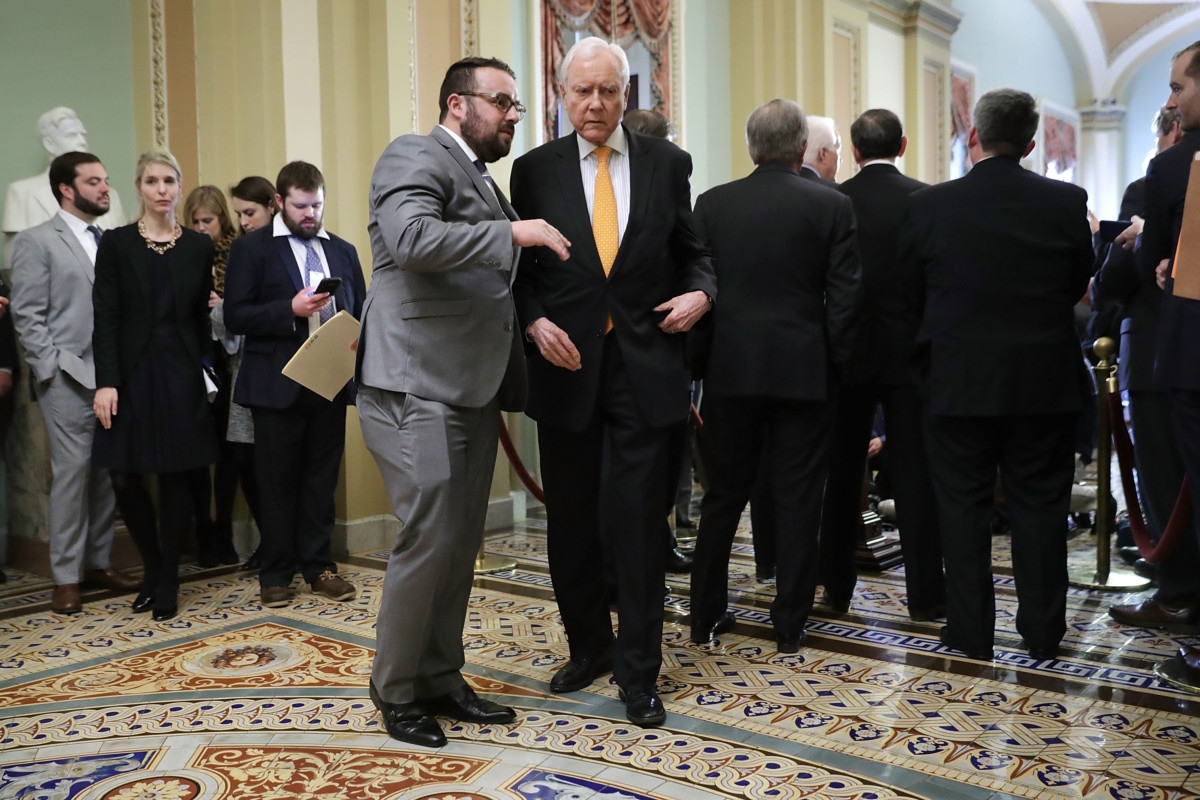Senate Finance Panel’s Opioid Hearing to Focus on Changes to Medicare, Medicaid

As the Senate Finance Committee prepares for its first hearing this year on the opioid crisis Thursday morning, members will bring up changes the panel wants to make this spring in four policy areas, including to Medicare and Medicaid, that are outlined in a document obtained by Morning Consult.
The document, which was sent by committee staff to legislative aides who work for senators on the panel, incorporates recommendations the panel received from more than 100 stakeholders who were asked for input by Committee Chairman Orrin Hatch (R-Utah) and ranking member Ron Wyden (D-Ore.) in February.
The committee has held previous hearings and passed bills on the opioid crisis, but Thursday's hearing is its first on the latest legislative effort.
According to the document, on which Politico previously reported, what is billed as a bipartisan Senate Finance Committee effort will focus exclusively on policy changes to Medicare, Medicaid and human services programs. A separate legislative push by the Senate Health, Education, Labor and Pensions Committee focuses on changes to other government agencies not in the Senate Finance Committee’s jurisdiction, including the National Institutes of Health and the Food and Drug Administration.
Also, the House Energy and Commerce Committee is considering more than 60 bills to combat the opioid crisis, including some that target Medicare and Medicaid.
Among policy changes to be considered by the Senate Finance Committee are ways to facilitate prescriber and patient education about proper opioid use, as well as ways to enhance drug management protocols. The panel will also evaluate access and usage of non-opioid treatment options for pain.
In addition, the committee will look at proposals to improve access to “evidence-based care” – including screening, assessment and treatments – for patients suffering from substance use disorder and opioid use disorder.
Family members of people suffering from substance use disorder and opioid use disorder will also be a focus on the legislative push, including testing services intended to preserve and reunite families.
The final plank of the legislative push will focus on enhancing data sharing within government health programs, including the interaction with the Prescription Drug Monitoring Program and Medicare and Medicaid.
The document said proposals to be considered should have bipartisan support and have little or no cost, unless there is an agreed-upon offset.
Other issues could also be discussed at the hearing, which will feature Health and Human Services Assistant Secretary for Health Brett Giroir and Kimberly Brandt, principal deputy administrator for operations of the Centers for Medicare and Medicaid Services.
For example, Sen. Debbie Stabenow (D-Mich.) will likely raise the issue of the cost of the overdose reversal drug naloxone at the hearing, spokeswoman Miranda Margowski said Wednesday by email. Stabenow, along with 13 other Democratic senators and independent Sens. Angus King (Maine) and Bernie Sanders (Vt.), sent a letter Wednesday calling on HHS to reduce the price of the drug.
Correction: A previous version of this story omitted a reference to the Senate Finance Committee's previous work on the opioid crisis.
Jon Reid previously worked at Morning Consult as a research editor for domestic and world politics.